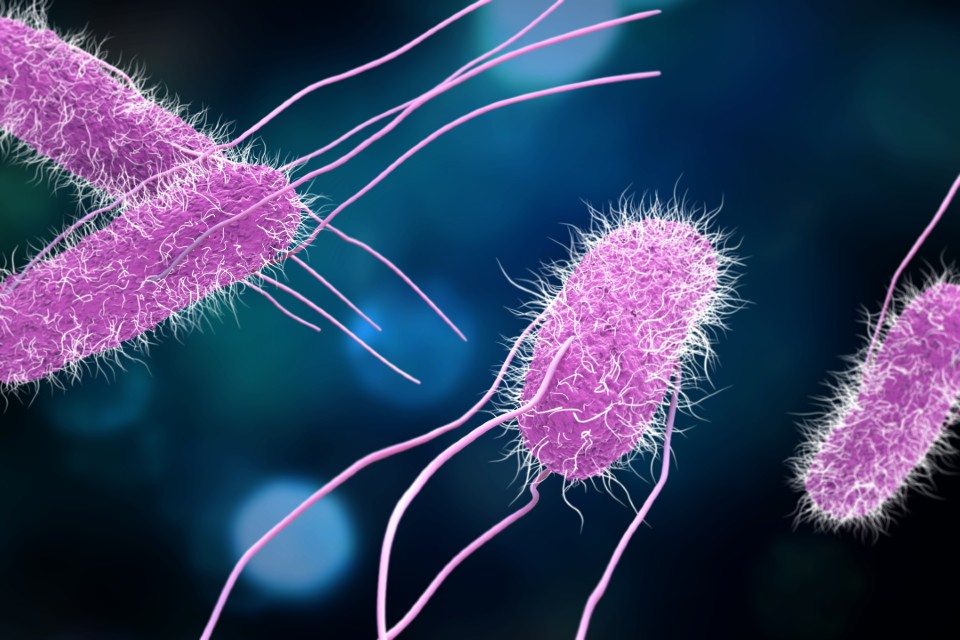
The University of Liverpool’s Professor Jay Hinton and an international team have been awarded £4.56 million in Wellcome Discovery funding to lead a five-year research programme exploring how some healthy humans are naturally protected from being infected by Salmonella Typhimurium.
Building on the research group’s decades of pioneering work into invasive non-typhoidal Salmonella (iNTS) in Africa, a disease which has killed more than half a million people in the past decade, this new initiative shifts focus to ‘colonisation resistance’ — the ability of the gut microbiota to prevent infection.
The study is a follow-up to the CHANTS human challenge trial, a £3 million Wellcome-funded project recently completed by Dr Malick Gibani’s team at Imperial College London together with Professor Hinton.
In CHANTS, 50 healthy volunteers were deliberately exposed to Salmonella Typhimurium by drinking a vial containing the bacteria. Remarkably, some individuals showed complete resistance to colonisation — a finding that forms the scientific basis of the new research programme.
Using advanced experimental models of the human gut microbiota, the team will investigate how microbial composition, nutrient utilisation, and dietary factors determine resistance to Salmonella Typhimurium infection. By integrating data from the CHANTS human-challenge study with multi-omics analyses of infection dynamics, they aim to reveal the microbial mechanisms that confer colonisation resistance. The research will be supported by the University’s Centres for Genomic Research (CGR) and Metabolomic Research (CMR).
Key objectives and impact:
- Combatting antimicrobial resistance (AMR): Microbiota-based therapeutics could reduce reliance on antibiotics.
- Training future leaders: Supports early-career researchers in microbiome biology and systems biology.
- Global collaboration: Involves collaborators from Imperial College London, ETH Zürich, University of Tübingen and DSMZ, alongside partners in microbial ecology, metabolomics, and gut physiology.
- Open access resources: Will produce communities of human microbiota that will be shared worldwide with protocols to accelerate global research.
Led by Professor Hinton, the team includes Lisa Maier (University of Tübingen), Prof Wolf Hardt (ETH Zurich), Dr Malick Gibani (Imperial College) and the University of Liverpool’s Dr Blanca Perez-Sepulveda, Prof Roy Goodacre and Dr Ed Cunningham-Oakes.
Dr Blanca Perez-Sepulveda said: “This award allows us to explore the invisible defenders — the gut microbiota — and understand why some healthy people never become colonised when deliberately exposed to Salmonella bacteria. Eventually, we hope it might be possible to modify the microbiota in susceptible children in Africa to prevent iNTS disease.”
Building on expertise
In 2018, Professor Hinton’s group identified a specific genetic change, or single-nucleotide polymorphism (SNP), that helps one of the African Salmonella clades to survive in the human bloodstream. Jay’s group recently discovered the evolutionary path taken by Salmonella over 50 years of human infections in Africa, and revealed the landmark genetic events responsible for shaping the phenotype of the pathogen.
The Hinton lab is currently using a combination of RNA-seq-based transcriptomics, Tn-Seq and experimental evolution to understand the infection biology of the dangerous African Salmonella pathovariants during infection of human macrophages.
With this new funding, Liverpool will expand its leadership in Salmonella research and the cutting-edge analysis of human stool samples from the INTEGRATE study, generating novel understanding of how the gut ecosystem naturally resists bacterial infections.